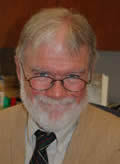
On vacation at a Lake Michigan beach one day last week, while sipping gin and tonic and shooting the breeze with some younger and nicer people, I made a nonchalantly dismissive — and doubtless unfair — remark about acupuncture, or herbal medicine, or chakras, or scientology, or astrology or Oprah Winfrey or something.
A reprimand was not long in coming: How could I, who believe that a wafer of bread and a cup of wine can become both a meal and God, accuse anyone subscribing to Whatever-It-Was of being credulous? I wish I could say that our conversation then deepened, or at least that I came eloquently to the defense of the intelligibility of what the Catholic Church holds and teaches and what I believe. Neither of those things happened, though, and the talk meandered agreeably along as the sun set over the lake and the thermos of cocktails slowly drained away.
But the reprimand lingers even as the vacation and the memory of a pleasant evening on the beach recedes, perceptible even through the half-conscious rhythms of home life, work, public liturgy and private prayer. And that is, itself, a sort of blessing, I think.
I’m no theologian, and I’ve never been able to give a very compelling defense of the faith, but I think I have at least a rough idea of what is meant by the phrase in the Letter to the Hebrews, “the assurance of things hoped for, the conviction of things not seen.” But without such assurance and conviction, belief in the Eucharist or the Incarnation or even creation, for that matter, can seem outlandish, perhaps even outrageous and perverse.
It’s a good thing to keep in mind, and believers, or at least believers like me, ought to be grateful for the reminder that faith makes us odd; that, whether we like it or not, our belief places us in nearly diametric and irreconcilable opposition to the evident assumptions of contemporary culture and the customary ways of making do.
Only by forgetting what I believe can I regard anything as ordinary: The drumming of rain on the rooftop last night, the aching of my aging body getting out of bed this morning, the aroma of brewing coffee, the chubby groundhog I startled during my bicycle ride to work through the humid and overcast morning, the staccato tapping of my fingers on the laptop keyboard as I write. . . . If God has become man, if the Word has become Flesh, if the Creator has come into creation, then all of these things have become explosive with meaning.
Every single palpable, tangible, material thing, the world in all of its inclusion and particularity, the whole shebang, held in being by the utterance of the Word. . . . If all of these things do not astonish me beyond words, it is only because I am forgetful, distracted and occluded.
It’s a good thing to be reminded of the strangeness of faith, a good thing to hear that secular reprimand from time to time. Believers should be grateful for such admonition, because it is far too easy to live deliriously, to sleep-walk one’s way through an ongoing miracle.
Michael Garvey is Notre Dame’s assistant director of public information and communication. Email him at garvey.2@nd.edu.